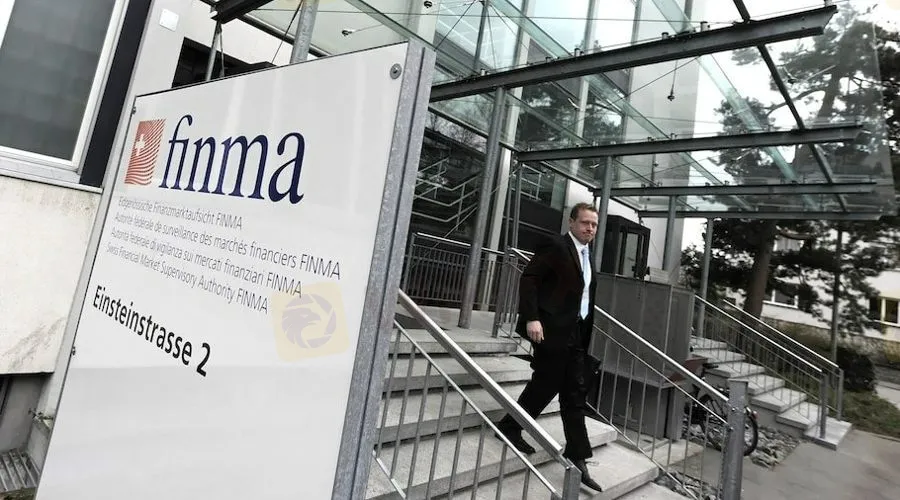简体中文
繁體中文
English
Pусский
日本語
ภาษาไทย
Tiếng Việt
Bahasa Indonesia
Español
हिन्दी
Filippiiniläinen
Français
Deutsch
Português
Türkçe
한국어
العربية
LCG Capital Markets Closes Due to FlowBank Bankruptcy
Abstract:LCG Capital Markets Limited, known as FlowBroker, ceases operations due to FlowBank SA's bankruptcy following FINMA's regulatory actions and the appointment of a liquidator.

LCG Capital Markets Limited, also known by its trade name “FlowBroker,” announced today that it will cease operations. The decision comes in the wake of bankruptcy proceedings against its parent company, FlowBank SA, launched by the Swiss Financial Market Supervisory Authority (FINMA) on June 13, 2024.
FINMA‘s actions were prompted by FlowBank’s failure to meet capital requirements, maintain organizational adequacy, and fulfill disclosure and reporting obligations. According to a statement, FINMA appointed Walder Wyss SA as the bankruptcy liquidator. The liquidation process is based at FlowBanks headquarters in Geneva.
“Due to significant agreements between LCG Capital Markets Limited and FlowBank SA, the appointment of the Liquidators has currently made it impossible for LCG Capital Markets Limited to carry out its operations,” the company stated.
LCG Capital Markets Limited has cited a “Force Majeure Event” under section 25 of its Terms and Conditions, which outlines scenarios preventing the company from fulfilling its obligations. The company added, “We may, in our reasonable opinion, determine that an emergency or an exceptional market condition exists which may prevent us from performing any or all of our obligations.”

The cessation of LCG Capital Markets Limiteds operations affects its clients who maintain funds with accounts at FlowBank SA.
The downfall of FlowBank SA is rooted in a series of regulatory breaches. FINMA initially intervened in October 2021, citing serious violations of supervisory laws, particularly regarding capital requirements and risk management. Subsequent measures included appointing an independent auditor and a monitor to oversee the banks activities. Despite these efforts, FlowBank continued to violate regulatory standards, including engaging in high-risk business relationships and inadequate financial reporting.
On March 8, 2024, FINMA withdrew FlowBank‘s license, disqualifying it from conducting proper business activities. The situation worsened when the bank’s financial statements revealed breaches of minimum capital requirements, leading to the opening of bankruptcy proceedings.
FlowBank, founded in 2020 by former LCG CEO Charles-Henri Sabet, offered services including cryptocurrency transactions and had strong ties with crypto asset manager CoinShares. However, FINMAs findings of over-indebtedness and regulatory violations led to its downfall.
FlowBanks bankruptcy affects its extensive client base, holding over 22,000 accounts with assets totaling nearly CHF 680 million. While deposits up to 100,000 Swiss francs are protected, the status of crypto deposits remains uncertain.

Disclaimer:
The views in this article only represent the author's personal views, and do not constitute investment advice on this platform. This platform does not guarantee the accuracy, completeness and timeliness of the information in the article, and will not be liable for any loss caused by the use of or reliance on the information in the article.
Read more

The Hidden Checklist: Five Unconventional Steps to Vet Your Broker
Forex broker scams continue to evolve, employing new tactics to appear credible and mislead unsuspecting traders. Identifying these fraudulent schemes requires vigilance and strategies beyond the usual advice. Here are five effective methods to help traders assess the legitimacy of a forex broker and avoid potential pitfalls.

Doo Financial Obtains Licenses in BVI and Cayman Islands
Doo Financial, a subsidiary of Singapore-based Doo Group, has expanded its regulatory footprint by securing new offshore licenses from the British Virgin Islands Financial Services Commission (BVI FSC) and the Cayman Islands Monetary Authority (CIMA).

CFI’s New Initiative Aims to Promote Transparency in Trading
A new programme has been launched by CFI to address the growing need for transparency and awareness in online trading. Named “Trading Transparency+: Empowering Awareness and Clarity in Trading,” the initiative seeks to combat misinformation and equip individuals with resources to evaluate whether trading aligns with their financial goals and circumstances.

Malaysian-Thai Fraud Syndicate Dismantled, Millions in Losses Reported
The Royal Malaysia Police (PDRM) has received 26 reports concerning the Nicshare and CommonApps investment schemes, both linked to a major fraudulent syndicate led by a Malaysian citizen. The syndicate’s activities came to light following the arrest of its leader by Thai authorities on 16 December.
WikiFX Broker
Latest News
ASIC Sues Binance Australia Derivatives for Misclassifying Retail Clients
WikiFX Review: Is FxPro Reliable?
Malaysian-Thai Fraud Syndicate Dismantled, Millions in Losses Reported
Trading frauds topped the list of scams in India- Report Reveals
AIMS Broker Review
The Hidden Checklist: Five Unconventional Steps to Vet Your Broker
YAMARKETS' Jingle Bells Christmas Offer!
Revolut Leads UK Neobanks in the Digital Banking Revolution
Fusion Markets: Safe Choice or Scam to Avoid?
SEC Approves Hashdex and Franklin Crypto ETFs on Nasdaq
Currency Calculator


